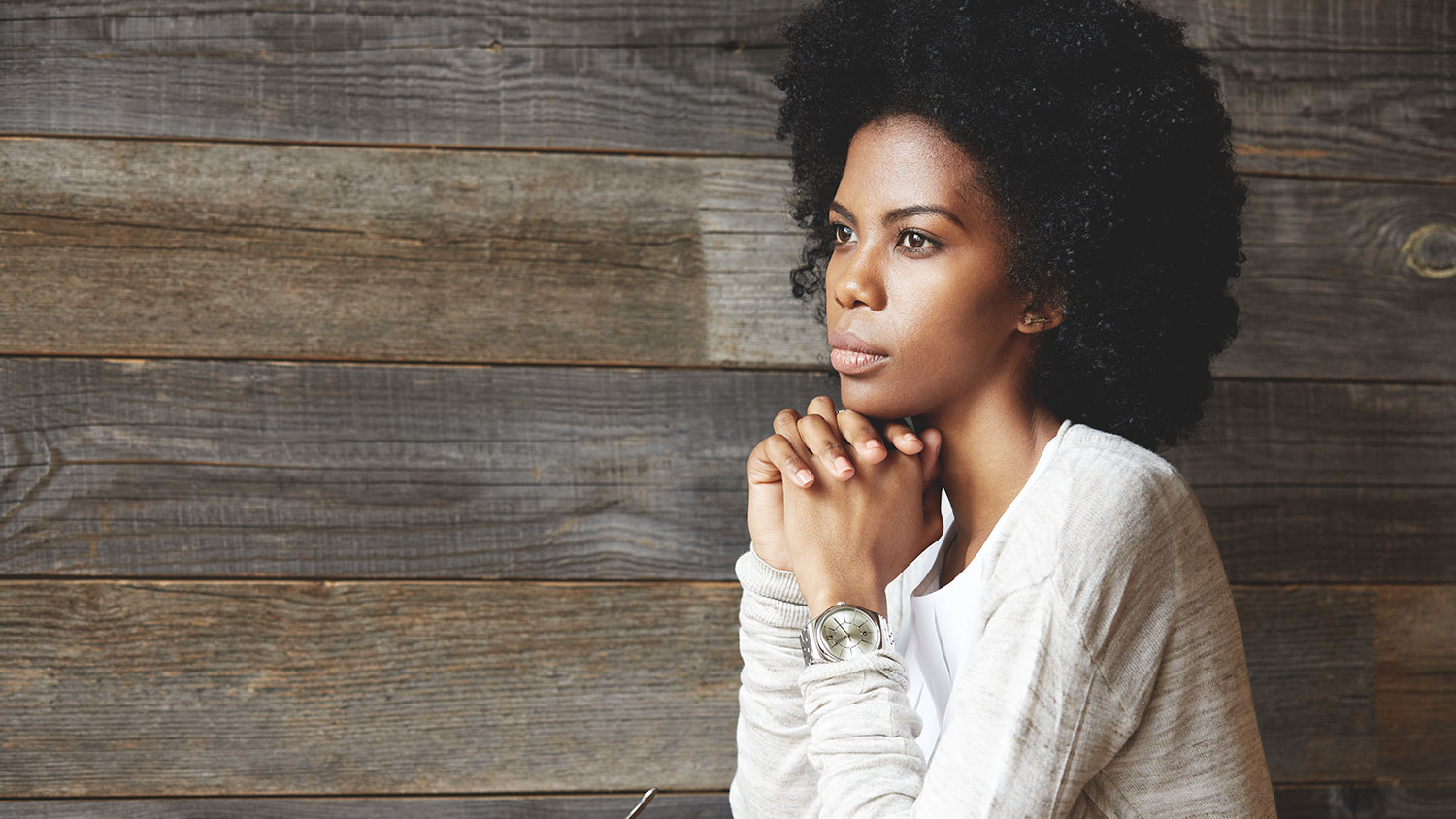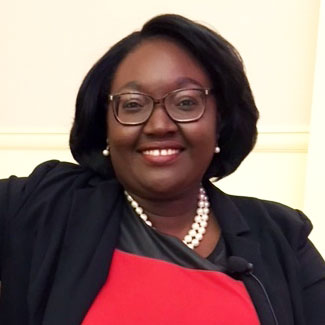Faces in the Crowd: Relationship Violence and Black College Women

Domestic Violence Awareness Month keynote speaker Lorraine D. Acker shared her research on relationship violence in the college setting with NC State students, faculty and staff Wednesday, October 18, 2017.
 Acker holds a Ph.D. in higher education from Iowa State University, an M.S. in college student personnel from Western Illinois University, and a B.S. in African and Afro-American studies and political science from the State University of New York College at Brockport. Formerly the assistant dean of students for the Office of Minority Student Support Services and Women’s Programs at the University of North Carolina at Charlotte, Acker has worked to design programs around women’s issues and concerns. Her work focuses on exploring how women of color experience college.
Acker holds a Ph.D. in higher education from Iowa State University, an M.S. in college student personnel from Western Illinois University, and a B.S. in African and Afro-American studies and political science from the State University of New York College at Brockport. Formerly the assistant dean of students for the Office of Minority Student Support Services and Women’s Programs at the University of North Carolina at Charlotte, Acker has worked to design programs around women’s issues and concerns. Her work focuses on exploring how women of color experience college.
Now the director of the Margaret Sloss Women’s Center at Iowa State University, Acker’s research sought to understand and explore how four Black college women dealt with relationship violence encompassing domestic violence, dating violence and stalking.
As college women aged 18-24 are three times as likely as all women to experience sexual violence, and Black women experience relationship violence at a rate 35% higher than White women, Acker’s research addressed three related questions:
- How have Black college women experienced relationship violence in college?
- How have Black college women made meaning of their experiences of relationship violence?
- How have Black college women navigated campus resources related to their experiences of relationship violence?
“Context is important. There is a whole history about how Black women’s bodies were used and abused without repercussions,” said Acker. In addition to historical context, Acker pointed out that understanding personal context can shed light on why someone chooses not to disclose abuse, for example. “There is not a lot of discussion about prior victimization, but this discussion is necessary to understand why victims may not engage on college campuses.” Some of the most common mental and emotional effects of domestic violence include depression, anxiety, feelings of hopeless and the inability to trust, among many others. “It’s vital that we create spaces where victims of abuse feel safe and can seek help,” Acker stated.
“As a qualitative researcher you are actively engaged with the research,” reflected Acker on how interviewing the participants of her study emotionally affected her. The victims’ stories inspired her to write five compelling poems from the perspectives of Black college women experiencing relationship violence. “How they felt about being Black – how they felt about being Black women – became extremely important,” she says.
Self-definition and navigation on the college campus were also key aspects of Acker’s research. Naming the abuse is important; if one or one’s friend experiences relationship violence, they should seek resources for help. Survivors and supporters/allies should also understand that the healing process is different for everyone. For some, healing may come from speaking out against domestic violence and for others, it could take a different form.
Acker ended her presentation with recommendations for how college campuses can better support students experiencing relationship violence, including policy and practice acknowledging Black college women’s experiences, policy and practice acknowledging other forms of relationship violence, prevention policy acknowledging race, campus climate data that captures how people of color experience college and providing resources to address prior victimization.
- See the live tweets from this event on Twitter.
Austin Butler is a communications intern in the Office for Institutional Equity and Diversity. She is a senior majoring in science, technology and society.


